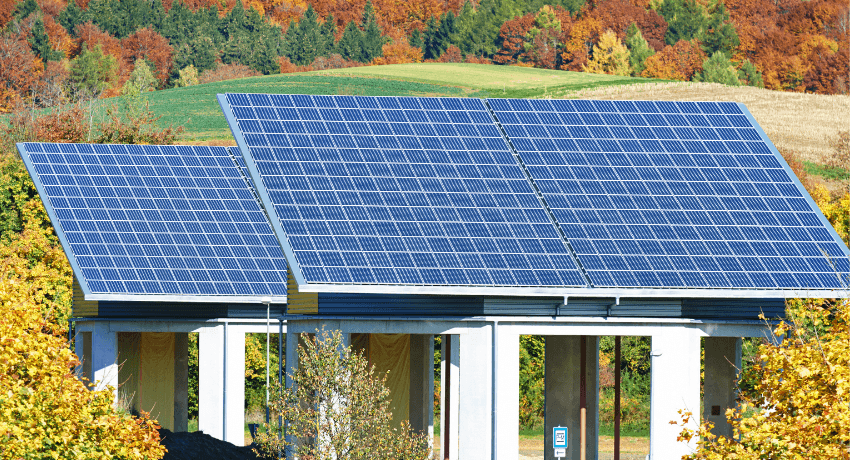Ground Mount vs. Rooftop Solar Panels
Planning to go solar? Once you have chosen the solar panels, you need to decide how to mount them. You must consider your budget, available space, and energy needs to make this crucial decision.
Typically, two types of mounting options are available for solar panels: ground mount and rooftop racking systems. Both mounting systems have their merits and demerits. Let us take a brief look at the benefits and drawbacks of each.
Benefits of Ground Mount Solar Panels
- Space is Not a Constraint
If you have sufficient space in your yard, you can add panels as and when you require more power. You can expand with minimum fuss, unlike the rooftop system where the dimensions of the roof restrict the expansion.
- Easy Accessibility
Easy access is a major benefit during the installation process and during routine cleaning, maintenance, and repairs.
- Better Airflow
The raised ground mount panels allow for optimum airflow and better cooling, which translates into higher and better energy output.
- Best Possible Alignment
With ground mount systems you can align your solar panels at the best possible angle towards the sun. Maximum access to sunlight makes the array more efficient.
Drawbacks of Ground Mount Solar Panels
- Labor-Intensive Installation
For ground mount solar panel array, you need to build a structure with sturdy foundations to hold the panels. The process involves soil survey, digging, and construction of a suitable foundation.
- Costly Installation
The whole project involving the construction of a new structure to support the solar panels costs much more than a rooftop system. The ground mount panel assembly also involves a larger number of parts and components.
- Costly Permitting Process
For building the new structure you will need to apply for a building permit with the relevant authority depending on where you live. You may need to submit a construction design plan and pay the requisite fees for the permit to build the new structure.
- Takes Up Real Estate
A ground mount solar panel cluster uses up a great deal of space on your property as compared to a rooftop one.
- Inferior Aesthetics
Even if space is not an issue for you, aesthetics might dictate your choice of mounting the solar panels, as some consider ground mount solar panel array to be an ugly eyesore on their land.
Benefits of Rooftop Solar Panels
- Less Expensive
Rooftop mounting for your solar panels turn out to be less expensive as these use the existing structure as a foundation. These mounts use fewer parts to assemble, and the labor costs are much lower than the ground mounts.
- Utilize Less Space
Rooftop panels use much less space than ground mounts. Not only that, these mounts utilize unused space in your building.
- Easier to Obtain Permit
A rooftop system involves a much straightforward and easier permitting process. You just need to submit your building blueprints that show that your roof is structurally stable, and the wiring, as well as electrical systems, are up to code.
- Insulation & Protection
A fortuitous benefit of a rooftop system is that it keeps your building well-insulated and provides protection to your roof against the rain, wind, snow, and harmful ultra-violet light.
Drawbacks of Rooftop Solar Panels
- Hard to Access
You must consider the accessibility of your roof and your own mobility before going for a roof mount system. Often, unutilized rooftops are hard to access and unsafe.
- Harder to Repair & Maintain
The reason for this again is the lower accessibility of the roof structure in a building.
- Lower Output & Efficiency
Rooftop solar panel arrays are not as efficient as ground mount systems. It is harder to aim them directly at the sun and thus optimize them for full output.
- Space Constraints
The standard size of the roof is about 1,500 square feet, some of which is taken up by vents, chimneys, etc.
Key Take-Away
Both mounting systems are useful and effective in their own way. Neither is better than the other. Your needs, lifestyle, and budget (which could be shrinking as food and energy costs increase because of new policies) should ultimately decide which one is the right choice for you.




